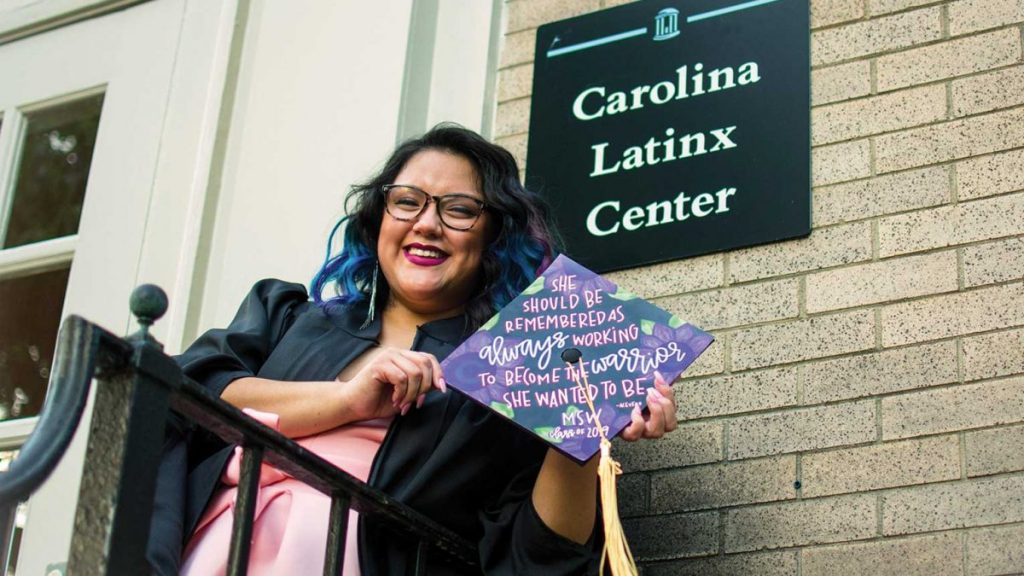
At this spring’s Commencement exercises, Theresa Flores ’13, ’19 (M.S.W.) rushed between important appearances at two ceremonies. There was no way to choose — even if they overlapped, she needed to somehow be at both.
Once was to receive her master’s degree from the UNC School of Social Work, a true milestone in her mission to create a world where Latinx populations can be seen, feel safe and be heard.
The other was Éxitos! Latinx Graduation Ceremony and Recognition Reception, an annual event to celebrate the work and dedication that students have devoted to the Latinx community. She’d attended the ceremony for her undergraduate commencement in 2013, but this time, she was the speaker.
She was invited to speak for her central role in the decade-long process of securing a freestanding Carolina Latinx Center on UNC-Chapel Hill’s campus, which the Board of Trustees approved in spring 2019.
“This all started as the Carolina Latinx Collaborative in 2009, and I am so proud that a student effort could go this far. I’m really happy for all those who fought for it and grateful for all the faculty who supported it. I got so emotional when the sign went up in Abernathy Hall — we’re a real center.”
Theresa, who came to UNC-Chapel Hill on a Carolina Covenant Scholarship, was not only a founding force in the launch of the collaborative as a first-year work-study student in 2009, but she was also a tireless advocate throughout her undergraduate career — and into employment and later graduate school — as she advocated for Latinx fellowship and a hub for Latinx culture, inquiry and discovery.
Together with other students and led by Carolina Latinx Collaborative Director Josmell Perez, Theresa helped make the collaborative a vibrant, influential initiative on campus, pouring her heart into outreach, events, advocacy and activism.
Burnout finally took its toll, and Theresa began to notice how, even globally, Latinx populations were left out of conversations about self care. Years later, she’s found a way to confront that problem, by becoming a licensed clinical social worker who can, hopefully, focus on Latinx communities and help them see their mental health as part of their overall health.
Her overall hope is that the long-awaited center can be a place of recognition, affirmation and celebration to support students like her.
“Our students from the Latinx community know that they have this space, and having that space means that we will advocate for you in all the ways we know how. When you create space, you make people feel counted, and if we are truly here to serve students, that is what we will do.”

